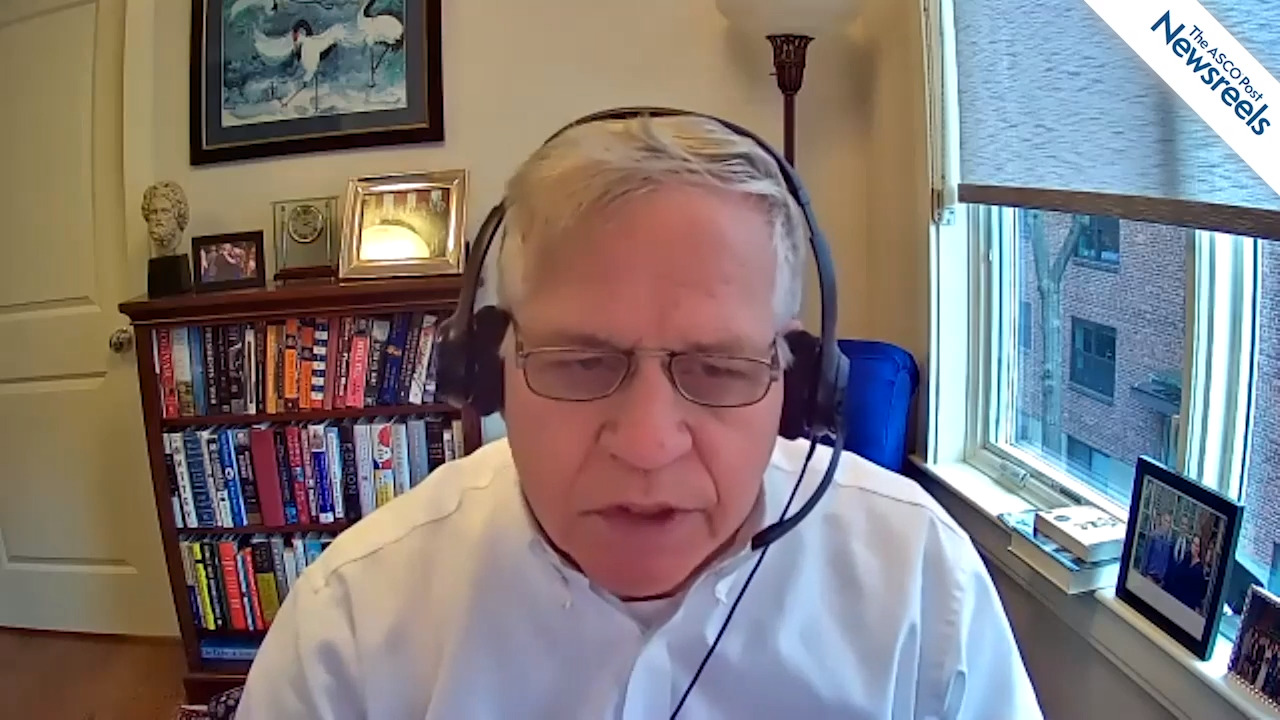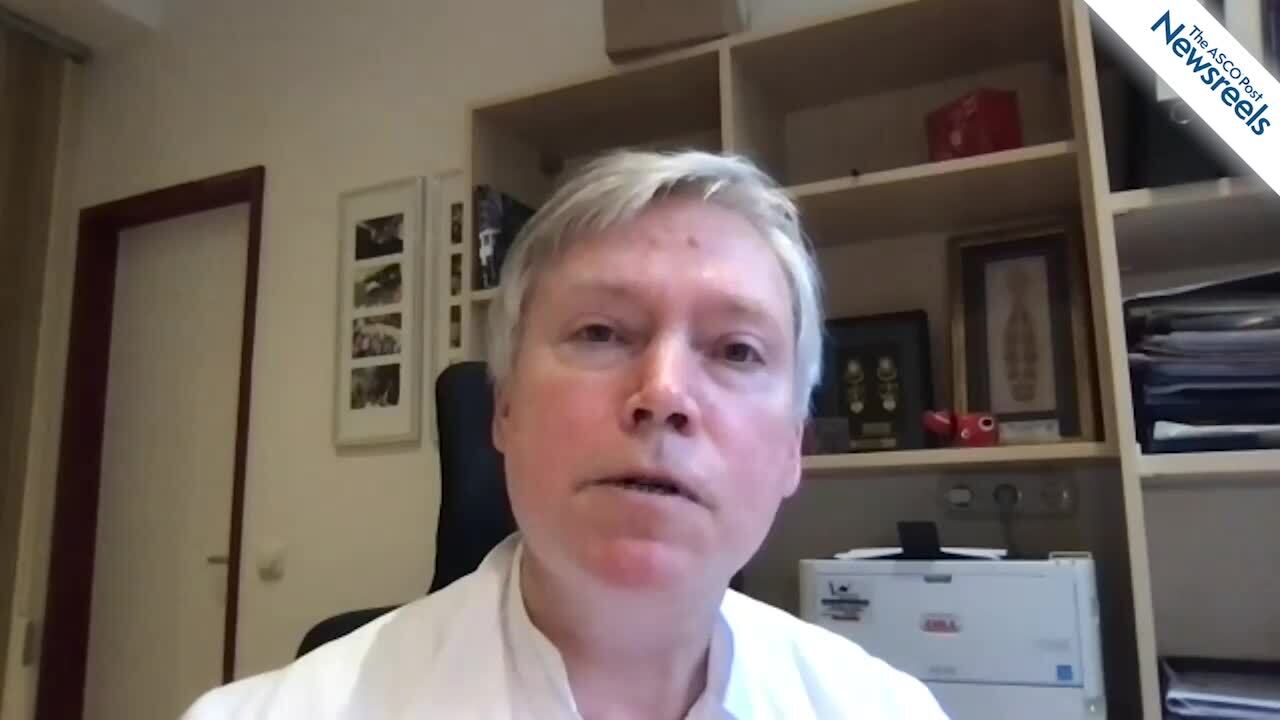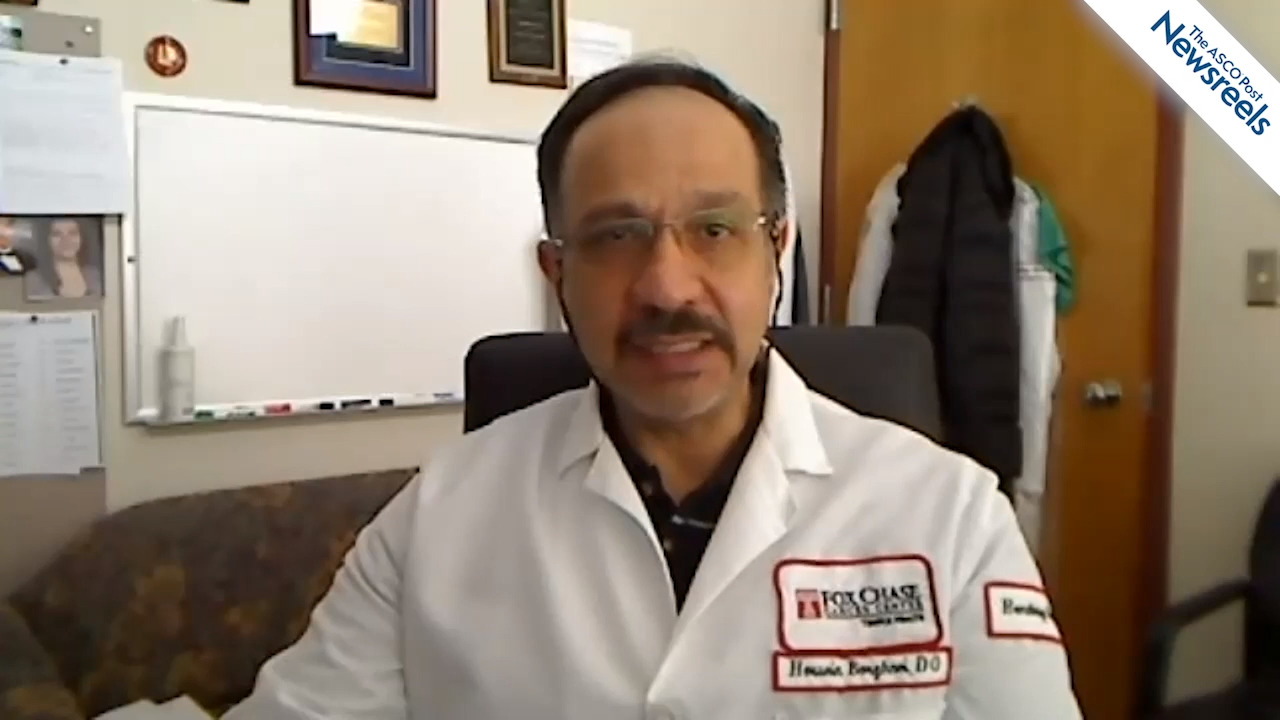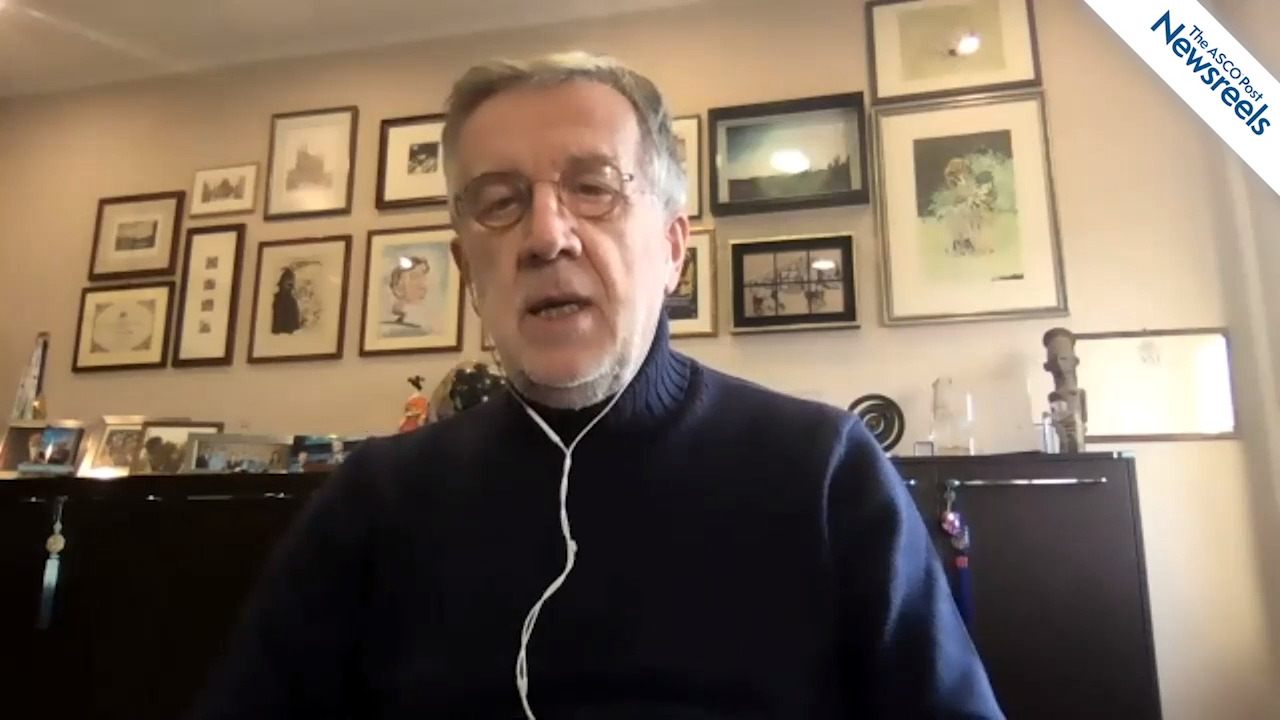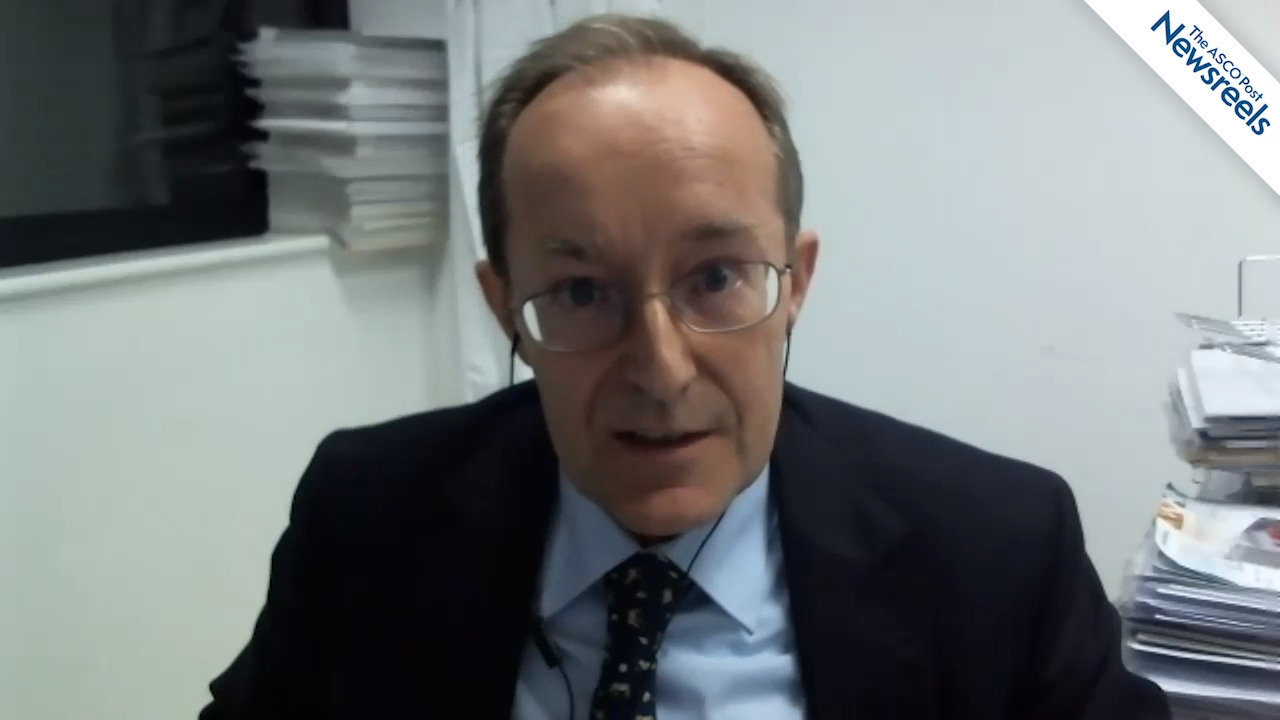Fred R. Hirsch, MD, PhD, on Searching for Therapeutic Strategies for Patients With Lung Cancer and COVID-19 Infection
IASLC 2020 World Conference on Lung Cancer in Singapore
Fred R. Hirsch, MD, PhD, of Mount Sinai Medical Center, invites his colleagues to enroll their patients in a large prospective study, for which he serves as Principal Investigator. The study is searching for solutions for treating patients with lung cancer who also have the coronavirus, because so many experience an aggressive course of infection.
The ASCO Post Staff
Bruce E. Johnson, MD, of Dana-Farber Cancer Institute, offers his expert perspective on single-arm drug approvals for targeted agents between 2016 and 2020, the need for biomarker testing, and the societal costs of drug development (Abstract PL04.03).
The ASCO Post Staff
Martin Reck, MD, PhD, of the LungenClinic, discusses the results from KEYNOTE-799, which explored a new strategy to increase the intensity of treatment in patients with unresectable, locally advanced, stage III non–small cell lung cancer (Abstract OA02.03).
The ASCO Post Staff
Hossein Borghaei, DO, of Fox Chase Cancer Center, discusses phase I results from a study of AMG 757, an experimental bispecific T-cell–engager (BiTE) immune therapy aimed at the DLL3 molecular target in patients with small cell lung cancer. At this early stage, results show clinical efficacy and safety, with 37% of 51 evaluable patients exhibiting disease control (Abstract OA11.03).
The ASCO Post Staff
Giorgio V. Scagliotti, MD, PhD, of the University of Torino, talks about why he believes that many more patients with lung cancer can be cured within the next 4 years, given decreases in mortality rates, widespread use of targeted treatments and immunotherapies, and earlier diagnoses as a result of systematic screening with low-dose CT (Abstract PL05.08).
The ASCO Post Staff
Luis M. Montuenga, PhD, of the University of Navarra, discusses the potential contributions of biomarkers, promising biomarker panels being tested and published, the need to standardize biospecimen collection, and how to improve the sensitivity of these biomarkers (Abstract PL05.06).
